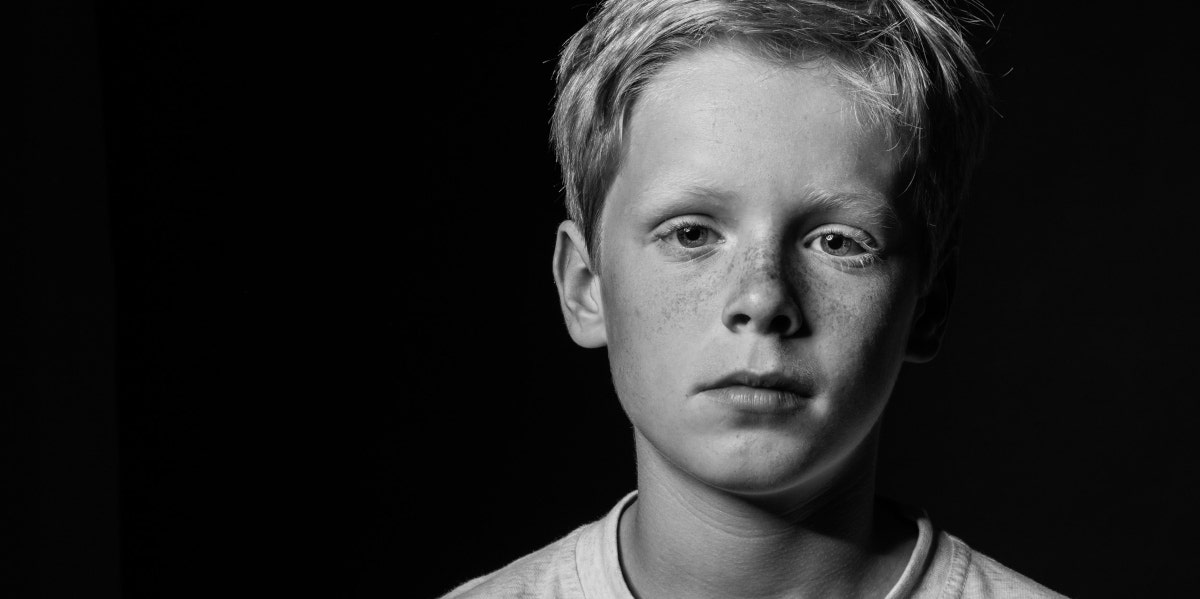How Kids Heal From Trauma When Working With A Therapist
Help your child heal after trauma with trauma therapy.
 getty
getty Why would your kids need a child therapist?
Divorce, abuse, bullying, and an unexpected loss of a loved one can be overwhelmingly stressful for children.
Too often, these sorts of encounters go unaddressed and start to impact kids of any age emotionally, physically, and mentally.
If severe enough, these experiences can become traumatizing, as they can disrupt every aspect of a child’s life.
As a parent or caregiver, you may feel confused, scared, or unsure of approaching the situation.
Despite the challenges, working with a child therapist can help build resilience and move forward. The quicker you intervene, the more you can prevent your child from experiencing the continuous effects of trauma as an adult.
To understand how working with a child therapist can help your child heal, it’s essential to acknowledge what trauma looks like.
Trauma Presentations In Children
Many children are exposed to potentially traumatizing events at one point in their lives. While most experience some level of distress following the event, the majority can return to a healthy, functioning state.
Since trauma appears differently in each child, and there are a variety of ways they can react.
Some of the responses may be influenced by:
How long the trauma occurred for (hours, days, years).
The severity of the traumatic event (experiencing or witnessing extreme physical, emotional, or sexual abuse).
Availability of support or resources.
Symptoms of trauma.
Although there’s a specific list of criteria required for a proper diagnosis of PTSD, there are various things that parents, caregivers, and other adults can look for.
If you’ve noticed any of the following behaviors or symptoms that seem out of the norm for your child, it may be worth talking with a trained professional who could help:
May have a change in typical behavior (increased aggression, etc.)
Have a tough time expressing emotions
They may be confused or worried as to why they feel the way they do
Frequent accidents after being potty trained (day or night)
Reenact the trauma during play
Become attached towards a caregiver or adult
Stop talking or socializing
Showing unusual behaviors or going through a traumatizing experience doesn’t always mean your child has PTSD, but it’s important to be aware of possible warning signs.
How does working with a child trauma therapist help children?
By engaging in trauma-focused treatment with a trained therapist, your child can learn more about what they are experiencing, address their concerns, and help them develop healthier coping strategies.
Here are 4 benefits of working with a child therapist after trauma.
1. You receive psychoeducation.
Working with a trained therapist provides a space for you and your child to understand the connection between the trauma and current symptoms.
Caregivers are also given an opportunity to learn how to manage these behavioral changes at home effectively and how to better communicate with their children.
This can be extremely validating, as it normalizes their experiences and lets them know that other kids who’ve experienced similar things can feel ashamed or scared.
2. You re-establish a sense of safety.
A traumatic encounter is a result of a violation of safety. This can include a physical, emotional, or psychological sense of security.
Through various activities and discussions, your therapist will help develop their emotional, psychological, and physical senses of safety.
Depending on your unique experience, your therapist will guide you on how to stay safe in future situations to avoid re-traumatization or future abuse.
You may also discuss how to maintain and continue with the healing process.
3. You learn to identify triggers.
Once a trusting relationship starts to develop, your therapist will help your child understand and recognize which situations, memories, or emotions may be associated with reminders of the trauma.
Children may suddenly behave or act out emotionally. These behaviors are typically inappropriate for a situation but are actually responses to trauma reminders.
Also known as "triggers," trauma reminders can be confusing or frightening for both you and your child. Understanding them provides an opportunity to change responses to them.
4. You develop healthy coping skills.
You and your child will discover healthy skills and improve coping strategies to the reminders and emotions associated with the traumatic event.
For example, if your child experiences frequent nightmares, they can use deep breathing or other mindfulness strategies.
Being able to describe negative or uncomfortable emotions can reduce the number of destructive reactions to them or other ways your child may be expressing them.
They’ll learn how to use feeling words to describe what’s going on, such as "I’m feeling really scared."
The trauma therapist helps you and your child in managing emotions, specifically the emotions related to the abuse.
For example, children are taught how to identify and express their emotions and engage in self-soothing exercises when experiencing intense emotions, like fear or anger.
These strategies are introduced early on to help your child stabilize their emotions and behavior. Learning these skills supports your child’s resiliency and ability to bounce back from their traumatic experience.
Many types of trauma-informed treatments exist today.
With the number of options available, your therapist can help identify which intervention is right for your child, as treatment is meant to meet both your child’s and your family’s unique needs.
Trauma-focused or trauma-informed treatments may look different based on age, trauma experience, setting, or location.
But by simply starting the healing process, your child can cultivate better relationships with siblings, teachers, and peers and learn a set of skills that can last a lifetime.
With the help of an empathic, confidential, and non-judgmental therapist, your child can increase self-esteem and learn crucial emotional life skills that can help them navigate adolescence and the world beyond.
Dr. Leda Kaveh is a licensed clinical psychologist and the owner/director of Washington Psychological Wellness. If you want to learn more about family therapy, contact them today!
